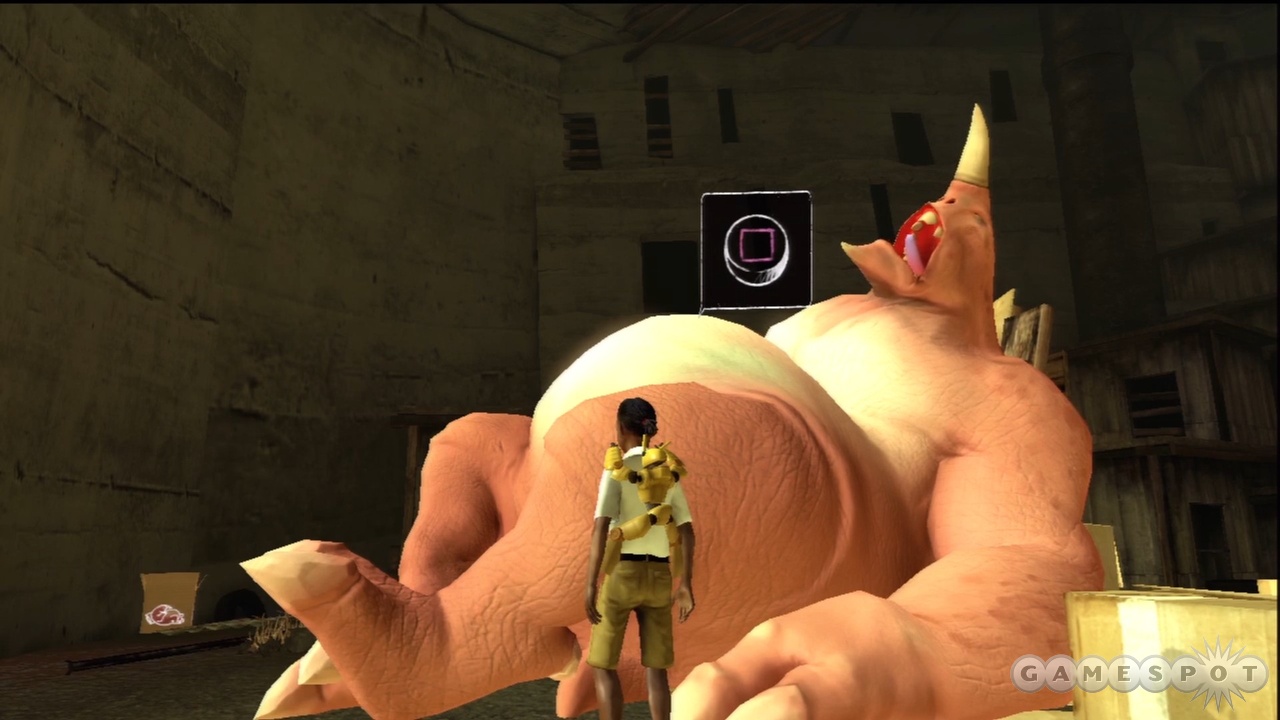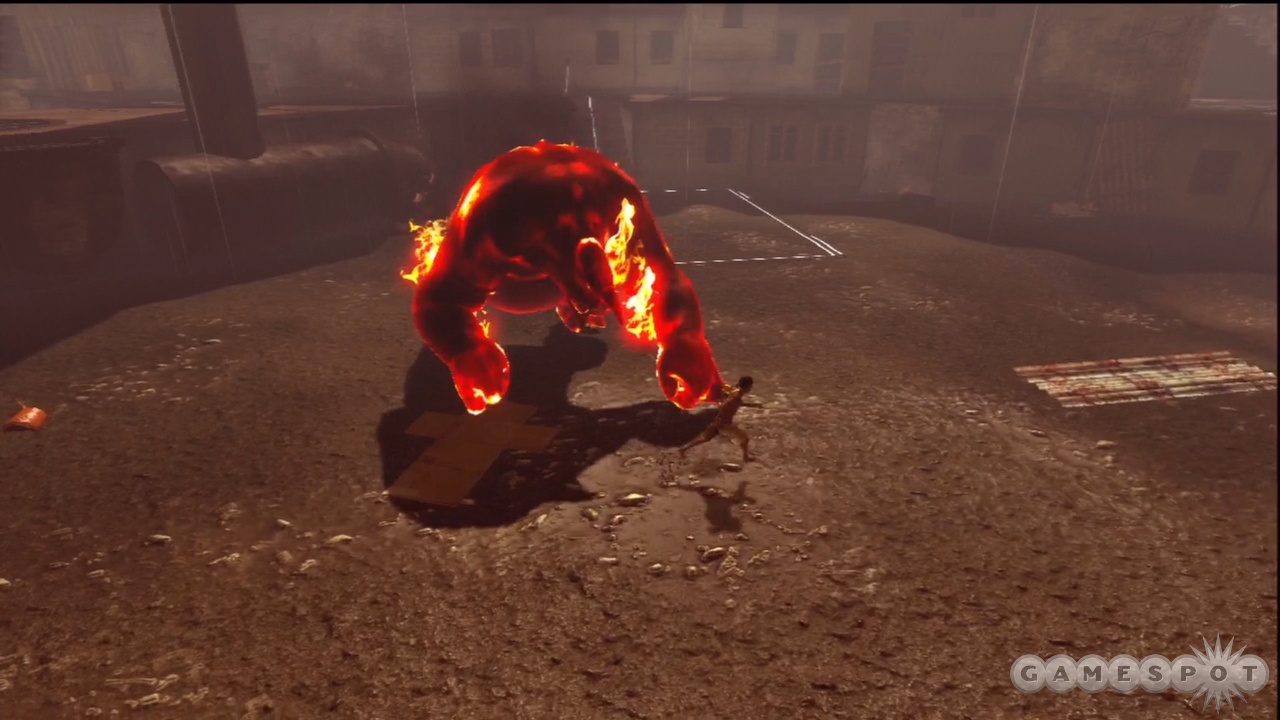Papo & Yo: A Different Kind of Family Story
GameSpot's Carolyn Petit examines how her personal experiences influenced her reaction to Papo & Yo, and why she thinks the game's story needed to be told.
PLEASE NOTE: This story contains major spoilers for Papo & Yo.
When I was very young, I would sometimes lie awake in bed, afraid to fall asleep because of the monster that might be waiting for me in my dreams. It was a massive creature, its skin orange, buzzing, and crackling like electrified fire, its voice rumbling like the end of the world. Waking up provided little comfort, though; in the waking world, another fear drove me to withdraw deep into my own imagination, trying to escape from my unstable and often terrifying reality. The fear of my father.
Narratives about family in America, whether they rise out of film or television or the speeches of politicians, tend to stress the notion that family comes first. Family can be difficult and painful at times, and conflicts may erupt periodically, but in the end, family should stick together. So dominant is this message in American life that it has been hard for me, as someone whose life followed another path, to not feel guilty at times about the choices I've made. Papo & Yo tells a different kind of story about family, a story that I suspect that I'm not alone, as the child of an alcoholic parent, in relating to.

My father was a man who spent much time in his mind. His interests in politics and technology ran deep, and when you got him talking on a topic he was interested in, it was hard to get him to stop. I remember how much I enjoyed pestering him for information about the workings of calculators and car engines, in the way that kids pester their parents about all sorts of things. My curiosity was insatiable, with every answer leading to another question, and he was only too happy to satisfy.
But he was a haunted man, and often, with the aid of a bottle, his demons got the better of him, and he became a terrifying force. Sometimes, when a door slams, I'm that scared little child again for an instant, cowering in bed as my father approaches with that malicious gleam in his eye and curl in his lip that tell me that, at this moment, he's the living embodiment of the monster who haunts my dreams.
These experiences are a part of me. I can't leave them at the door when I read a book, watch a movie, or play a game like Papo & Yo, nor do I think I should be expected to. We respond to art as we are. Sometimes art may resonate with us on a more personal level because of experiences we've had, though I tend to think that the best art often illuminates its subject matter in universal terms. You don't need to be transgender, for instance, to be moved by the humanity and tragedy of the film Boys Don't Cry.
As someone who knows something about growing up with an alcoholic parent, I was deeply concerned about where Papo & Yo was headed. At a certain point, the game's story becomes about young boy Quico's quest to cure the monster named Monster of his ailment--a hunger for frogs that, when consumed, send Monster into a fiery, all-consuming rage. This is, of course, the game's not-so-thinly-veiled alcoholism metaphor, and what troubled me was my knowledge that there is no cure. If an alcoholic takes the difficult step of acknowledging that he or she has a problem, and if he or she has the determination to do something about it, then of course, recovery is possible. But this motivation must ultimately come from within. For a child to cure a parent of alcoholism is impossible, though a sense of guilt for not being able to do just that often weighs heavily on children of alcoholics.

During this phase of the game, I was concerned that it was going to trade in its potential to say something honest about its topic for a happy ending in which Quico saves Monster, which would have rung hollow and false. But in the end, my concerns were allayed. What Quico learns when he reaches the summit where he's been told the shaman awaits is that there is no cure, that he must let go of Monster--and since the walls between Quico's real world and his imaginative world have crumbled, there is no longer any doubt that Monster and his father are one and the same. This moment, when you, as Quico, push Monster irrevocably away from you was the honest, painful, cathartic conclusion that I had hoped for. In my own way, this is how I ultimately handled things with my father, letting go of him and extricating myself as much as possible from the instability and strife he generated around himself like the center of a hurricane.
Of course, family should come first. Every child deserves to be raised in a stable, loving home. But this isn't the reality for many children, and these children deserve to see themselves and their experiences reflected in stories…
Papo & Yo tells an honest tale about this difficult issue in a way that I found both beautiful and captivating. There's no denying that my experiences influenced the ways in which Papo & Yo affected me, though I also believe that it didn't affect me solely as a result of those experiences. I believe that the visual language of its metaphorical fable has a universal power to it, that it can help children who don't grow up with an alcoholic parent better imagine and empathize with the experiences of those who do.
Of course, family should come first. Every child deserves to be raised in a stable, loving home. But this isn't the reality for many children, and these children deserve to see themselves and their experiences reflected in stories, and to know that if a parent brings constant upheaval and fear to your life, that's not a reflection on you. It's not your fault, and it's OK--even right--to distance yourself from those who hurt you when life presents the opportunity. Sometimes, you need to let other people go, even if they're family. I'm grateful to Papo & Yo for telling a tale that illustrates this seldom-heard, vitally important truth.
Got a news tip or want to contact us directly? Email news@gamespot.com
Join the conversation